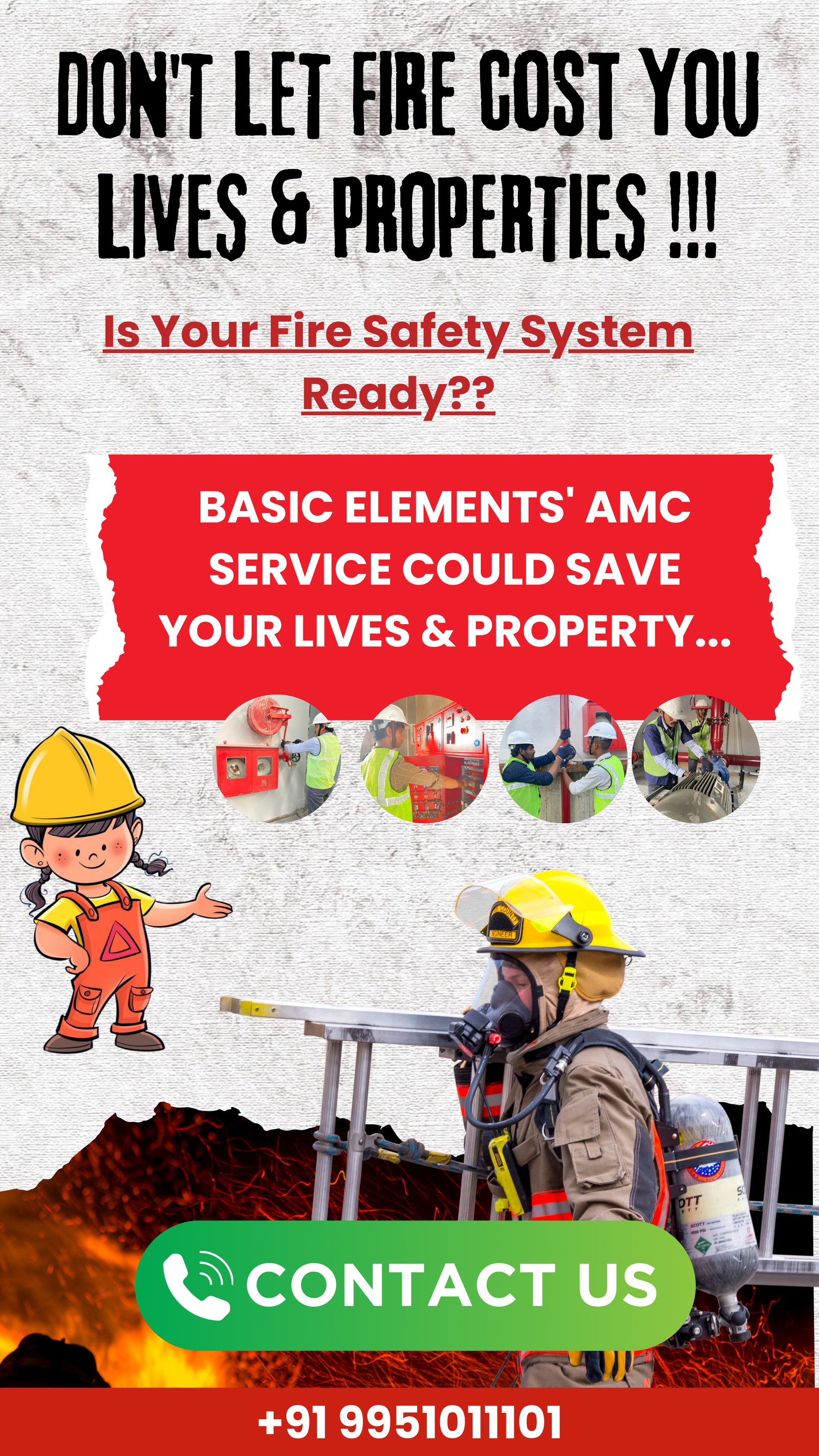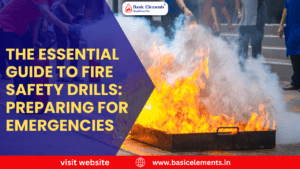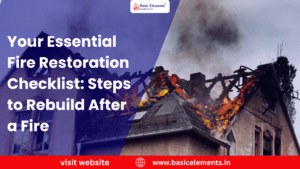We’ve all seen the devastating Preventing effects of wildfires in recent years. Entire neighborhoods burned to the ground. Lives lost. Livelihoods destroyed. As fire seasons grow longer and more severe, what can we do to protect our apartments and communities?
It starts with prevention. What unique steps can you take today to fireproof your property? Clear dead brush and leaves within 30 feet of structures. Stack firewood away from the house. Clean gutters and roof areas regularly. Small actions make a big difference when a wildfire strikes.
Fire evacuation plan For The Preventing
Having a fire evacuation plan is one of the most important things you can do to prevent fire from spreading in your community/apartment. Make sure everyone in your household knows the primary and alternate exit routes from each room. Choose a designated meeting place outside, like a neighbour’s house, a light post, or a mailbox.
Practice the evacuation plan regularly, at least twice a year, so that everyone is familiar with what to do in the event of a fire. Running practice drills ensures that even young children will know the evacuation procedures by heart. During a practice drill, imagine that various exits are blocked by smoke or flames and find alternate escape routes.
Also practice what to do if the fire prevents you from getting outside, like sheltering in place or signalling from a window. Having a well-practiced fire evacuation plan can mean the difference between life and death in an apartment fire. The extra time spent preparing can help you escape safely and prevent the fire from spreading further.
Install Smoke Alarms
Having working smoke alarms in your apartment is one of the best ways to prevent fire from spreading. Smoke alarms detect smoke at the earliest stages of a fire, allowing you to get out safely before the fire grows. It’s crucial to have smoke alarms on every level of your apartment and inside and outside all sleeping areas.
The specific placement recommendations for smoke alarms in an apartment are:
- Put smoke alarms on every level of the apartment, including the basement. Smoke rises, so installing alarms on every floor provides the earliest warning on whichever floor a fire starts.
- Install smoke alarms inside every bedroom and sleeping area. Closed doors can prevent smoke from waking sleeping occupants, so having alarms in bedrooms provides an alert before smoke fills the room.
- Place smoke alarms outside each separate sleeping area. This picks up smoke in hallways before it reaches sleeping areas with closed doors.
- Avoid installing smoke alarms in kitchens or bathrooms where steam can set them off accidentally. The particles in smoke from a real fire are different than steam.
- Install alarms high on walls or ceilings. Smoke and dangerous gases rise to the ceiling first. Mounting alarms on the ceiling in the center of a room places them closest to these deadly threats.
- Follow the manufacturer’s installation instructions carefully. Proper installation is key to smoke alarms working as intended.
- In addition to having enough smoke alarms in smart locations, it’s essential to maintain them. Test all smoke alarms monthly by pressing the test button to ensure they are working properly. Change the batteries in battery-powered smoke alarms every 6 months. Replace any smoke alarms over 10 years old, as the sensors can degrade over time. Performing these simple maintenance steps routinely will help ensure your smoke alarms are ready to alert you if a fire starts in your apartment.
Keep Appliances and Electrical in Good Condition
Faulty appliances and electrical wiring are a leading cause of apartment fires. To prevent fires from faulty appliances and wiring:
- Have furnaces, fireplaces, and chimneys inspected annually by a professional to ensure they are in good working order and free of combustible buildup. Schedule annual maintenance checks before the start of each heating season.
- Replace any appliances that have frayed or damaged power cords. Do not try to repair cords yourself with electrical tape, as this can hide damage and increase fire risk. Only use appliances with intact cords.
- Check electrical outlets and wiring for signs of heat damage such as discoloration or melted plastic. If you see any damage, disconnect the appliance immediately and have an electrician inspect and replace any outlets or wiring in poor condition.
- Do not overload outlets with too many plugs. Use outlet splitters cautiously and don’t link more than one splitter together. Overloaded outlets are a major fire hazard.
- Keep appliances a safe distance away from anything that can catch fire, like curtains, furniture, or flammable liquids. Follow the manufacturer’s recommendations for safe clearance.
- Unplug small kitchen appliances like toasters and coffee makers when not in use to prevent potential shorts or sparks.
Taking preventative measures to address appliance and electrical hazards can help stop many fires before they start. Schedule regular inspections and immediately address any issues.
Practice Safe Cooking
Cooking fires are a leading cause of apartment fires. Practicing safe cooking habits can help prevent kitchen fires from starting and spreading. Here are some tips:
- Stay in the kitchen when cooking. Don’t leave food cooking on the stove or in the oven unattended. Set a timer to remind you to go back and check on food regularly.
- Keep anything flammable away from the stove or oven. This includes dishtowels, paper towels, bags, boxes, paper, and more. Have a “safe zone” of at least 3 feet around the stove and oven that is clear of anything that could catch fire.
- Turn pot and pan handles inwards so they don’t stick out over the edge of the stove. This prevents them from being bumped or grabbed accidentally.
- Wear tight fitting or rolled up sleeves when cooking. Loose, dangling sleeves can easily catch fire if they come in contact with a gas burner flame.
- Keep a lid nearby to smother small grease fires. Slide the lid over the pan and turn off the burner. Do not remove the lid until it has completely cooled.
- Avoid cooking when sleepy or after consuming alcohol. Being alert in the kitchen greatly reduces cooking fire risks.
Following basic kitchen safety rules can go a long way in preventing cooking fires from starting and spreading in your apartment.
Be Careful with Candles
Candles can quickly turn from providing a warm glow to being a fire hazard if not used properly. Here are some tips for staying safe with candles:
- Use sturdy, non-tip candle holders. Choose candle holders made from non-flammable materials and make sure they are stable enough not to be accidentally knocked over. Avoid using makeshift holders like cups or bowls which can tip easily.
- Keep candles away from anything flammable. Place lit candles a safe distance from curtains, furniture, bedding, clothes or anything else that could catch fire. Keep them out of high traffic areas where people may accidentally brush by and knock them over.
- Extinguish candles before leaving the room. Never leave a lit candle unattended. Blow it out if you are leaving the room or going to sleep.
Following basic precautions like these will help ensure candle accidents don’t occur in your apartment. Candles can set a nice ambience, but should always be used carefully.
Avoid Overloaded Outlets
Overloading electrical outlets is a major fire hazard. Too many appliances plugged into one outlet can cause overheating of the wires and start an electrical fire. It’s important to be mindful of how many devices are plugged in per outlet.
Do not plug more than one high-wattage appliance into a single outlet at a time. Appliances like space heaters, window AC units, and hair dryers use a lot of energy and can overload an outlet by themselves. Check the wattage requirements of your devices and make sure you don’t exceed the rating of your outlets.
Additionally, never plug power strips or extension cords into each other to increase capacity. This daisy-chaining creates a fire risk. Extension cords are intended for temporary use only. If you need additional outlets, install new electrical outlets with the help of a qualified electrician.
Also be cautious of running cords underneath carpets or furniture as this can damage the cord’s insulation over time. Damaged cords pose a serious fire and shock hazard. Position extension cords safely along walls and away from high traffic areas.
By avoiding outlet overloads and using extension cords properly, you can greatly reduce the risk of electrical fires in your apartment.
Dispose of Fireplace Ashes Safely
One of the most common causes of house fires is improperly disposed ashes from the fireplace. It’s crucial to allow all ashes to fully cool before attempting to clean them out of the fireplace. Hot embers can often remain long after the fire appears to be out. Pour water over the ashes and stir them with a shovel to ensure no hot spots remain. Never vacuum ashes, as this can spread embers into vacuum cleaner bags and ducts.
Once completely cooled, ashes should be placed into a metal container designed for this purpose, never a cardboard box or plastic bucket which can melt or catch fire. Tightly seal the metal container before taking it outside. Keep the sealed container of ashes a safe distance from the apartment and any nearby buildings or trees. Avoid storing it in the garage or against the house. Ashes should be retained in the sealed container until fully disposed of. With proper cooling and containment, taking out ashes can be done safely without risk of spreading fire.
Extinguish Smoking Materials Fully
Cigarettes, cigars, pipes, and other smoking materials are a leading cause of apartment fires. It’s crucial to fully extinguish and safely dispose of smoking materials to prevent accidental fires.
Use deep, sturdy ashtrays when smoking. Avoid flimsy plastic or paper ashtrays that can tip over easily. Fill the ashtray with sand or water to completely douse lit cigarettes.
Always douse cigarette butts with water before throwing them away. Simply stubbing out a cigarette in an ashtray may not fully extinguish it. Adding water ensures no lingering embers remain.
Never smoke in bed. It’s easy to fall asleep while smoking and drop lit cigarettes onto bedding. Always smoke outside and standing up. Extinguish and dispose of cigarettes in an outdoor ashtray before going to bed.
Taking these simple precautions helps prevent smoking materials from igniting accidental fires. The few extra seconds it takes to fully extinguish and discard smoking materials safely can prevent immense damage from house fires.
Have Fire Extinguishers Handy
Having portable fire extinguishers around your apartment can be a critical first line of defense if a small fire breaks out. Fire officials recommend keeping ABC-type extinguishers in places like the kitchen, garage, and bedrooms since they can extinguish common combustibles like wood, paper, and cloth.
It’s important to inspect your extinguishers at least once a month. Check the pressure gauge to ensure the extinguisher is adequately charged and ready for use. If the gauge shows a low reading, have the extinguisher professionally serviced.
You don’t want the first time you use a fire extinguisher to be during an actual emergency. Take the time to educate yourself on how to properly operate one. Remove the pin, aim the nozzle at the base of the fire, squeeze the handles together, and sweep from side to side. Using the PASS method – Pull, Aim, Squeeze, Sweep – can help you remember the basic steps. Practice with an extinguisher outdoors first so you’re prepared if the real need arises.
Having accessible, working fire extinguishers and knowing how to use them properly gives you a fighting chance of putting out a small, contained fire before it spreads and causes major damage. They are an inexpensive but invaluable fire safety investment for any apartment.
Take steps now to protect your apartment and family from the threat of spreading fires Make your apartment and neighbourhood more fire-wise by clearing brush and leaves. Have an emergency kit ready to go. Be alert to fire danger warnings and ready to evacuate if needed. We all have a part to play in fire safety, so we should spread awareness, not fire.








Comments are closed.